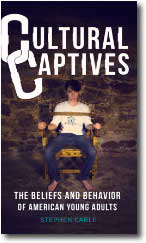This is the fifth of a series of posts reporting on our analysis of the survey data collected by the World Values Survey project. Surveys were conducted in 57 countries between 2010 and 2014. In all, over 85,000 people were interviewed for these surveys. The survey had fifteen questions directly concerning religious beliefs and practices. But it also had questions in a number of areas that related to how people applied their religious beliefs to cultural and political issues.
The first four blogs dealt with the North American countries, the United States and Mexico. With this post, I begin a series on the beliefs across the five European countries included in the survey process: Germany, Norway, Sweden, Spain and Cyprus.
As you probably know, Germany and Sweden were at the heart of the Protestant revolution, with the Netherlands following in their footsteps. Spain and Cyprus retained a much stronger connection to Roman Catholicism. Let’s see how their self-declared religious affiliations line up today.
| Table 1 | Religious Denomination | |||||
| Country | Age | Catholic (%) | Protestant (%) | None (%) | Other (%) |
| Germany | All | 29 | 33 | 31 | 6 |
| Under 30 | 29 | 34 | 30 | 7 | |
| 60 plus | 33 | 38 | 28 | 1 | |
| Sweden | All | 2 | 61 | 34 | 3 |
| Under 30 | 1 | 49 | 43 | 7 | |
| 60 plus | 2 | 69 | 29 | 0 | |
| Netherlands | All | 18 | 16 | 64 | 3 |
| Under 30 | 11 | 10 | 75 | 4 | |
| 60 plus | 25 | 21 | 54 | 1 | |
| Spain | All | 73 | 2 | 24 | 1 |
| Under 30 | 63 | 2 | 33 | 2 | |
| 60 plus | 86 | 1 | 13 | 0 | |
| Cyprus | All | 68 | 1 | 7 | 25 |
| Under 30 | 53 | 1 | 9 | 36 | |
| 60 plus | 90 | 0 | 4 | 5 | |
As shown the countries vary widely in their self-professed religious makeup. All of them, except Cyprus, have a significant percentage of Nones ranging from 24% in Spain to 64% in the Netherlands. Sweden, Netherlands and Spain have a significant increase in Nones among those under the age of 30 as we also observed in the United States and Mexico.
Apart from the Nones, each nation is somewhat unique in its distribution. Germany is almost equally split between Catholics, Protestants and Nones. Sweden has Protestants as a strong majority at the level of Protestants plus Catholics in Germany. The Netherlands has a strong majority of Nones with the remainder evenly split between Catholics and Protestants. Spain, of course, has a strong majority of Catholics and almost no Protestants. Cyprus also shows a strong majority of Catholics with a strong minority of Muslims among the younger generations.
As we will see in the following blogs, many of those who selected Protestant or Catholic denominations are not involved with the church in any significant way.
Pluralism
In the first blog of this series on the religious preferences of the United States and Mexico, we looked at how many agreed with this statement, “The only acceptable religion is my religion.” Let’s look at how this question was answered in Western Europe.
| Table 2 | Agree or Strongly Agree: The Only Acceptable Religion is My Religion | |||
| Country | Age | Catholic (%) | Protestant (%) |
| Germany | All | 33 | 30 |
| Under 30 | 22 | 23 | |
| 60 plus | 49 | 30 | |
| Sweden | All | 16 | 8 |
| Under 30 | 0 | 4 | |
| 60 plus | 30 | 12 | |
| Netherlands | All | 10 | 25 |
| Under 30 | 19 | 36 | |
| Under 60 plus | 12 | 23 | |
| Spain | All | 28 | 32 |
| Under 30 | 26 | 39 | |
| 60 plus | 35 | 25 | |
| Cyprus | All | 54 | 71 |
| Under 30 | 40 | 67 | |
| 60 plus | 69 | 100 | |
Note: Shaded areas did not have enough respondents to make the data useful
As shown, in Germany only about one in three Catholics and Protestants would say their religion is right and others are wrong. Those under thirty are much less likely to make that assertion. In any case, the vast majority of Germans take a pluralistic view.
Swedes are much less likely that Germans to agree with this statement, with fewer than one in ten taking a non-pluralistic position. Protestants in the Netherlands are similar to Germans, but Catholics are significantly more pluralistic. Catholics in Spain are also similar to those in Germany.
Except for Cyprus, all the countries had the vast majority of those affiliated with a Christian church taking a pluralistic view.
It is interesting to note that on this question Germany, Sweden and the Netherlands combined were generally consistent with the United States. Mexico and Spain were also fairly consistent, with 49% of Mexicans and 32% of Spaniards taking a non-pluralistic view.
Clearly for Western Europeans, whether they claim to be Catholic or Protestant, most reject the teachings of the Bible in favor of a pluralistic doctrine. They change John 14:4 from “I am the way, the truth and the life” to “I am a way, a truth and a life.”













